
The Elder Scrolls series is rightly famous for defining what an open world game should be, and Skyrim can arguably be considered the most worthy in the lineage. As the title suggests, the game takes place in Tamriel’s northern most province, a rocky and inhospitable land that is home to the Viking-like Nords. The assassination of the High King of Skyrim has precipitated the next prophecy found in the Elder Scrolls foretelling the return of dragons and the destruction of the land unless a destined champion can fight them off. Guess who you play as?
(For a little more back story on the world of Nirn, and the game setting in general, you can check out Jesse’s great primer.)
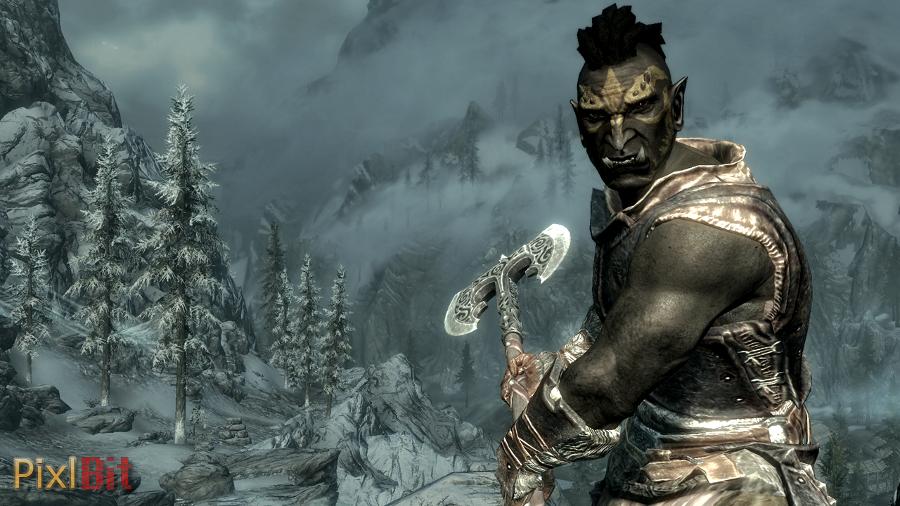
As has become typical of the Elder Scroll series you start the game as an unnamed prisoner just set free into the world. The opening sequence blows away its predecessors in terms of engagement… and the quantity of things on fire. Your first real decision though occurs during the opening and that is deciding who and what you are. There are ten races to choose from, each with their own unique abilities and look. The creation system really drives home how well the graphics engine has been overhauled as you go about determining cheek width and eye depth in creating an avatar.
Once again in the Elder Scrolls pattern, you are shoved out into a massive world after the opening with only a vague idea of what is happening and where to go. To many people this is considered a turn off and can almost be a paralyzing event. What do you do? What happens if I make the wrong choice? Whom do I trust?
But these questions are exactly what make Skyrim (and the Elder Scroll series in general) so amazing. The fear and annoyance felt is what happens when you are given the freedom to do what you want in a game. This isn’t a “sandbox” world where you can move around a single city, but only go into four buildings. This isn’t a game where you develop superhuman abilities but a chain link fence stops you. Bethesda has made an entire country for you to explore, full of people who need help or want to use you towards their own ends that has nothing to do with the Elder Scrolls prophecy.
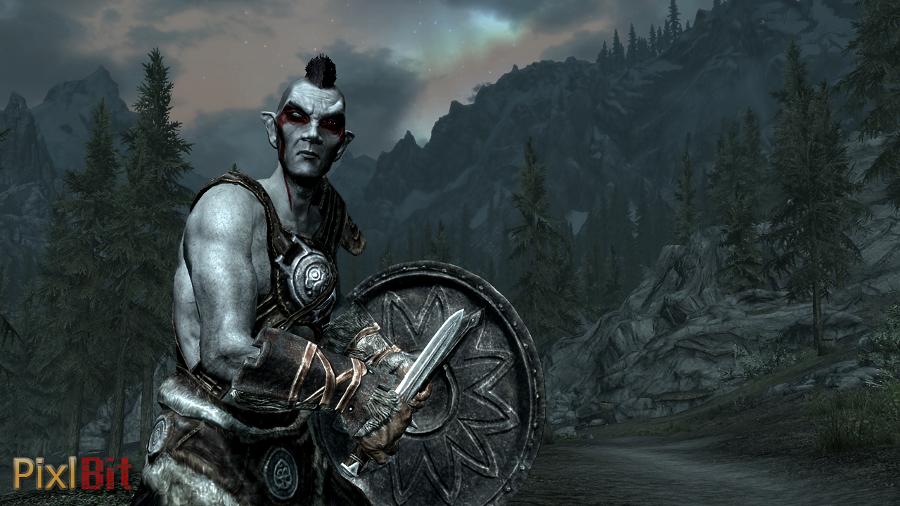
I typically find that it is easier to go off a “What would I do?” approach to these games and imagine how I would handle it if I were suddenly to awake as this person with magical abilities in a world I know nothing about. Typically this means I stay as far away from dungeons and ruins as I can until someone gives me a good reason to go in there. I also start to wonder if I am a closet kleptomaniac as I rob everyone in sight.
So after my escape I followed the suggestions of one of the few friendly people I met and went to tell the local lord about a dragon attack. This resulted in me “volunteering” to lead a scouting party to check out a local tower that had reported a dragon sighting as well. Avoiding any major plot reveals, you essentially learn from a group of Graybeards (wisemen) that dragons are returning and that I could be the one who is destined to slay them.
Playing the game as someone who wants to not get eaten by a dragon I decide to go off on my own and find miscellaneous quests that would hopefully lead to some artifacts and spells... maybe something that protected against teeth?
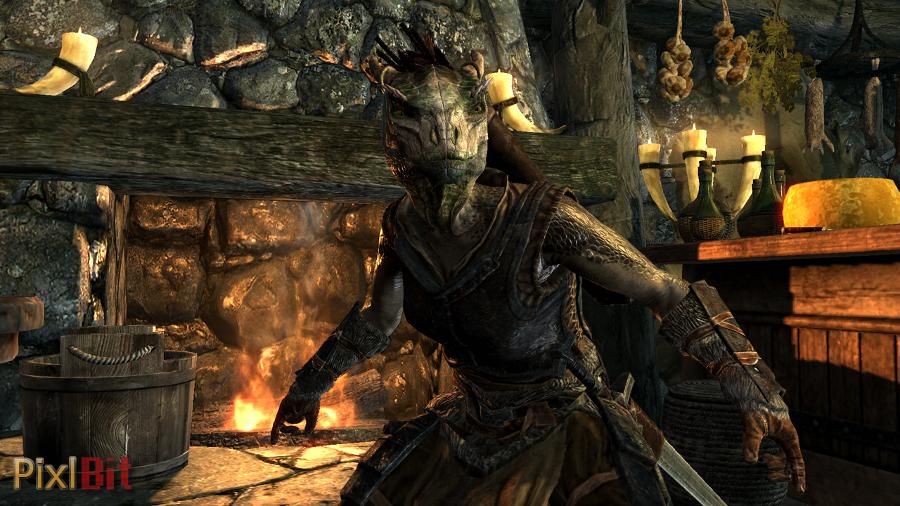
Forty hours of gameplay later and I had made a serious dent in my collection of non-plot quests. I had become an archmage, a member of an elite warrior group and had helped numerous people with small requests and favors. I was feeling pretty good about myself before I realized that I had only been to three -- THREE of the cities in the game. There were six more places full of quests just waiting to be handed out to me. Was I ever going to get back to the main quest? Would the graybeards just assume I had been killed and look for another champion?
It’s at this point when you realize just how big the world is. It has a land size comparable to Oblivion with so much more to do. Nothing is ever just there for looks; dungeons you have been to before will have secret passages you didn’t even know about until you find a key; favors for an NPC can impact something else in such a way that it will create an entirely new branch of options -- or close them off. You can even choose sides in a brewing civil war that will result in your becoming an enemy to an entire military group.
Luckily you will be playing the game long enough to admire the scenery. Skyrim is the first game I have played in a long time where I would just stop and stare at the landscape in fascination. My first time climbing a mountain I studied the way gusts of snow and wind wrapped around the ridges and was blown away by the attention to detail -- someone actually took the time to program an incredibly beautiful wind gust. Around 30 hours into the game I realized that there was a massive aurora shooting across the sky where I was at and I actually took a screenshot after staring at it long enough for a dragon to land behind me. This right here was a reason to love the game; Bethesda did right by abandoning any middleware engine and building their own.
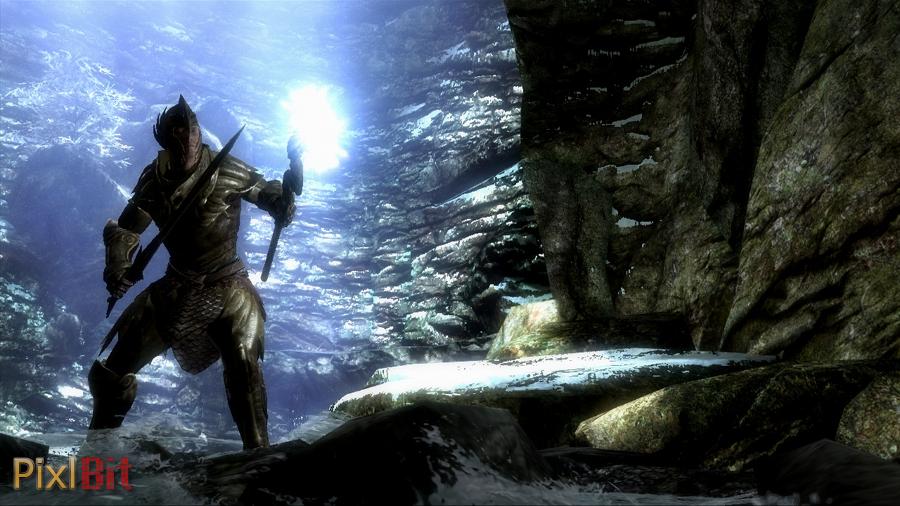
Stats-wise, Skyrim maintains a skill system where instead of being given skill points to invest in at each level, you instead improve skills by using them regularly. While this may seem like a bit of a chore it is actually an incredibly intuitive system of growth that caters to your playstyle. Just by focusing on avoiding combat and trying to always get in at least one initial shot with my bow before I had to wade into melee combat, I had reached a point where I was becoming a devastating sniper. My armor skills were pathetic and I would get easily mauled in fights, but that was my decision in playing.
When you have gained enough levels in a skill you will also gain a level. What this does is let you choose to raise one of three vastly simplified attributes: health, magicka, or stamina. Also at each level you will gain a single skill perk point. A perk is an ability that you can choose inside a skill grouping that will give you a specific edge. While each perk has a use, the ones that you can get by fully dedicating yourself down a path can be downright devastating; they'll do such things as x15 backstab damage with a dagger or summon two undead at once to fight for you. With around 280 perks and only 81 levels you must choose carefully which path you want to take.
Combat has remained relatively unchanged in terms of speed and presentation. Your default view is first person and things can tend to get very hectic in melee, one of the reasons I prefer archery. A major change however has been the addition of the ability to dual-wield. This allows you to have a different effect in each of your hands which can lead to some interesting combinations. While I default to my bow, in melee I tended to have a sword in my right hand and keep my left hand open for a variety of spell effects such as firebolt or summoning a ward. You can even have the same spell in both hands to combine for a more powerful effect -- with the right perks.
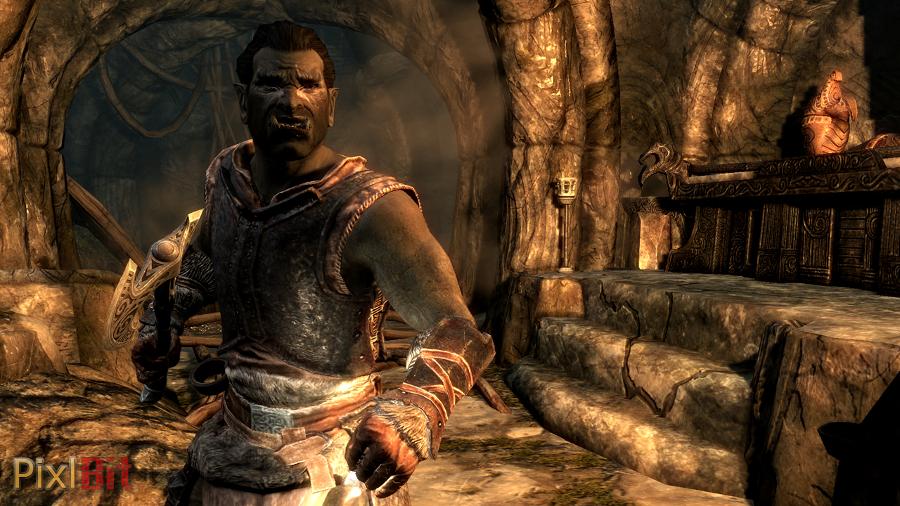
The magic system has remained relatively the same with the typical assortment of spells one would expect in a fantasy setting. A unique addition to the game though is your ability to learn and use shouts. Shouts are languages tied to the nature of the universe itself and you power them with the souls of the dragons you slay. While each shout has an appropriate sense of gravity to it as being something more powerful than a regular spell they are nothing truly overpowering. I still think the best is the first, a shout that launches an enemy back and away from you.
A massive change to the formula has been a reengineering of the opponent leveling system. In the previous Oblivion game your opponents would have a level of power that was meant to increase with you so that you never completely overmatched a dungeon. The problem with this was that you would start encountering regular bandits with incredibly powerful weapons running around that made combat unbearable. You never really got a feel for being powerful because even the wolves kept pace with you. Bethesda has put a cap system on each opponent type and things have actually become scalable. While big opponents will continually be an active threat the bandits will also keep their fur armor and become almost a joke in the end.
The only real point of contention I have with the game is that the computer AI can occassionally have some extremely quirky behavior to it that can result in an entire town turning against you for bumping into a bowl, followers turning and sprinting off at high speeds with no apparent intention of stopping, and enemies suddenly deciding they don’t think you’re so bad after all and stand still as I line up my next arrow. One particular example was a save point I had where the mage I was talking to would either attack me or remain friendly seemingly at random with each load. While these issues are rare enough that they are not something game breaking, they do ruin the immersion as you try to figure out what just happened.
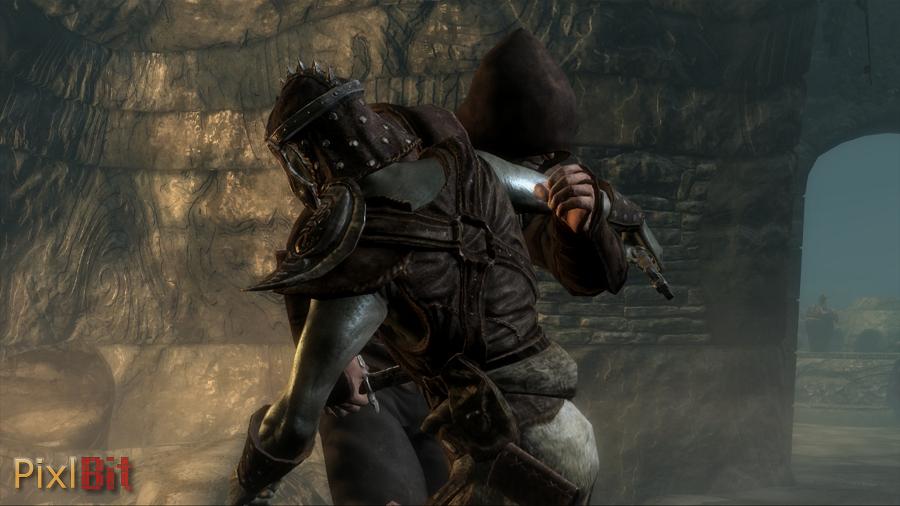
Skyrim is one of the true kings of the open world genre. If the role playing genre interests you at all it will be a purchase you will not regret. Anyone hoping to follow up to this better include a compass and some maps with my purchase.















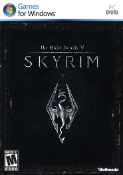

Comments